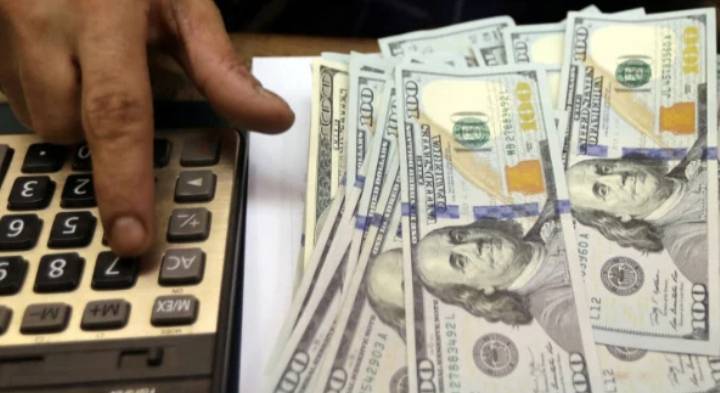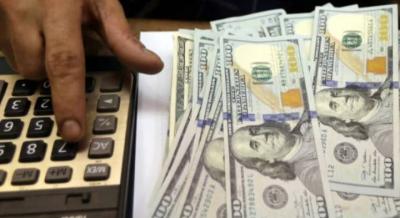In light of Lebanon being blocked from the radar of monitoring by the largest international financial institutions, an international report issued by the United Nations uniquely predicted that Lebanon would regain a positive economic growth trajectory, with encouraging rates approaching 4.6 percent for the current year and 4.4 percent for the next year. The same report also noted an expectation of a significant reduction in the inflation rate, forecasting 50.7 percent and 21.6 percent for the current and next years, respectively. These expectations are of utmost importance and are exceptional given the worsening general conditions in the country across all levels, based on the reality of presidential vacancy, entrenched disagreements over the caretaker government's responsibilities and powers, paralysis in the performance of the public sector and its institutions, as well as the ongoing delays in the finalization and completion of the government’s recovery plan, coupled with procrastination in the approval of reform bills that were stipulated as necessary conditions in the initial agreement that the government reached with the International Monetary Fund mission last April, reinforced by legislative and executive commitments to ensure its provisions.
Contrary to estimates issued by international financial authorities, most notably the World Bank, which indicated in a recent report that the real Gross Domestic Product contracted by 5.4 percent last year, thus negating prior expectations from the Governor of the Central Bank, Riad Salameh, of achieving a growth rate of 2 percent, the UN report estimated that the recovery rate of the Lebanese economy reached 5.7 percent during the past year of 2022, compared to a contraction of 11.7 percent in 2021. Meanwhile, the international rating agency "Moody's" partially aligns with the UN expectations, anticipating a return to positive economic growth for Lebanon starting in 2024 at an estimated rate of 3.5 percent; however, it differs regarding the forecasts for the current and preceding years, maintaining a negative outlook at -1 percent and -3.4 percent, respectively.
Thus, it can be reasonably concluded, according to an assessment by a senior financial official regarding these varying and contradictory data and estimates, that analysts within international institutions are also victims of the ambiguities inherent in the available financial data and the fundamental indicators it produces, due to the dense fog enveloping the economic, financial, and monetary developments in Lebanon—linked to the worsening of its diverse crises and its continual entrenchment in a cash economy that is difficult to gauge in terms of size and reality in the markets.
It is not surprising, according to the financial official, that the mounting local complexities have prompted the World Bank to officially announce the removal of economic forecasts for Lebanon beyond 2022 due to the increasing degree of uncertainty. This aligns with a previous declaration from the International Monetary Fund, which confirmed the withholding of its forecasts and indicators for Lebanon for the years 2021-2027 and refraining from including them in its report on "Global Economic Prospects," due to the unprecedented high level of uncertainty.
Simultaneously, the ambiguity in international analyses and their variances, according to the financial official, does not justify focusing on the positive reading presented in the most recent UN report on global economic prospects for 2023. These conclusions were prepared by the UN Department of Economic and Social Affairs (UN/DESA) and the United Nations Conference on Trade and Development (UNCTAD), alongside five regional committees distributed across Europe (ECE), Africa (ECA), Latin America and the Caribbean (ECLAC), Asia and the Pacific (ESCAP), and Western Asia (ESCWA).
The UN report, highlighted by the research department within the Lebanese Banking Group, did not overlook the enumeration and emphasis on the aspects plagued by negativity characterizing the performance of the Lebanese economy; the unemployment rate reached 29.6 percent, compared to 11.4 percent before the onset of the financial and economic crisis in 2019. Additionally, the inflation rate surged from 150.7 percent in 2021 to 176.4 percent in 2022.
In determining the influencing factors, it points to the continued rise in commodity prices and the depreciation of the national currency against the US dollar, compounded by external factors such as the large import bill. It is estimated that food prices rose by 332 percent annually during 2022, noting that Lebanon imports over 50 percent of its grain needs from Russia and Ukraine, alongside the severe damage sustained by grain silos and the capacity to store it due to the massive explosion at the Port of Beirut. It was noted that a plan was formulated to rebuild storage facilities at the port and to support local farmers in increasing domestic production.
Concurrently, Moody's agency, in a recent credit analysis, maintained Lebanon's sovereign rating at "C," reflecting a high probability that the losses for holders of government bonds would exceed 65 percent of their nominal value, asserting that the only strength for the rating lies in the commitment of donor countries to support Lebanon, conditioned on the implementation of the reform program prepared by the International Monetary Fund.
On the other hand, it enumerated the main existing challenges regarding persistent exposure to a severe economic, financial, and social crisis, the weakness of institutions, and the poor governance system that delays external support, coupled with the erosion of purchasing power due to the significant depreciation of the currency and the continuous rise in inflation levels.
Moody's affirmed that it does not expect any improvement in Lebanon's rating in the near term, as any improvement in the country's rating hinges on the implementation of fundamental reforms over several years, and the achievement of notable progress in debt dynamics such as economic growth, interest levels, privatization revenues, and the ability to record substantial primary surpluses; all of which are necessary to ensure the sustainability of debt in the future.
In linking the assessment of the state's creditworthiness to the prevailing negative political performance, it points out that the parliament has been unable to elect a new president, despite holding 11 sessions up to January 19 this year. Furthermore, no new government has been formed since the completion of the last parliamentary elections in May of last year.
The international agency emphasizes in its analysis that the state of political stagnation is the main reason for the inability of the political parties to commit to the reform requirements set by the International Monetary Fund, such as restoring liquidity in public finances and the banking system, legislating a capital control law, eliminating multiple exchange rates, and completing a comprehensive audit of the central bank's accounts and state-owned enterprises.
From another perspective, amid the deterioration of the lira's exchange rate in parallel markets, the agency noted that the central bank had adopted a new exchange rate of 15,000 lira, starting from early February, for cash withdrawals from accounts denominated in US dollars, with a monthly cap of $1,600. This "may motivate decision-makers to adopt this amendment in the exchange rate in terms of restructuring debt and implementing a reform program with external financing," but it should be warned against the impact of adjusting the official exchange rate on the magnitude of losses that will be recorded in the balance sheets of financial institutions and the central bank.




